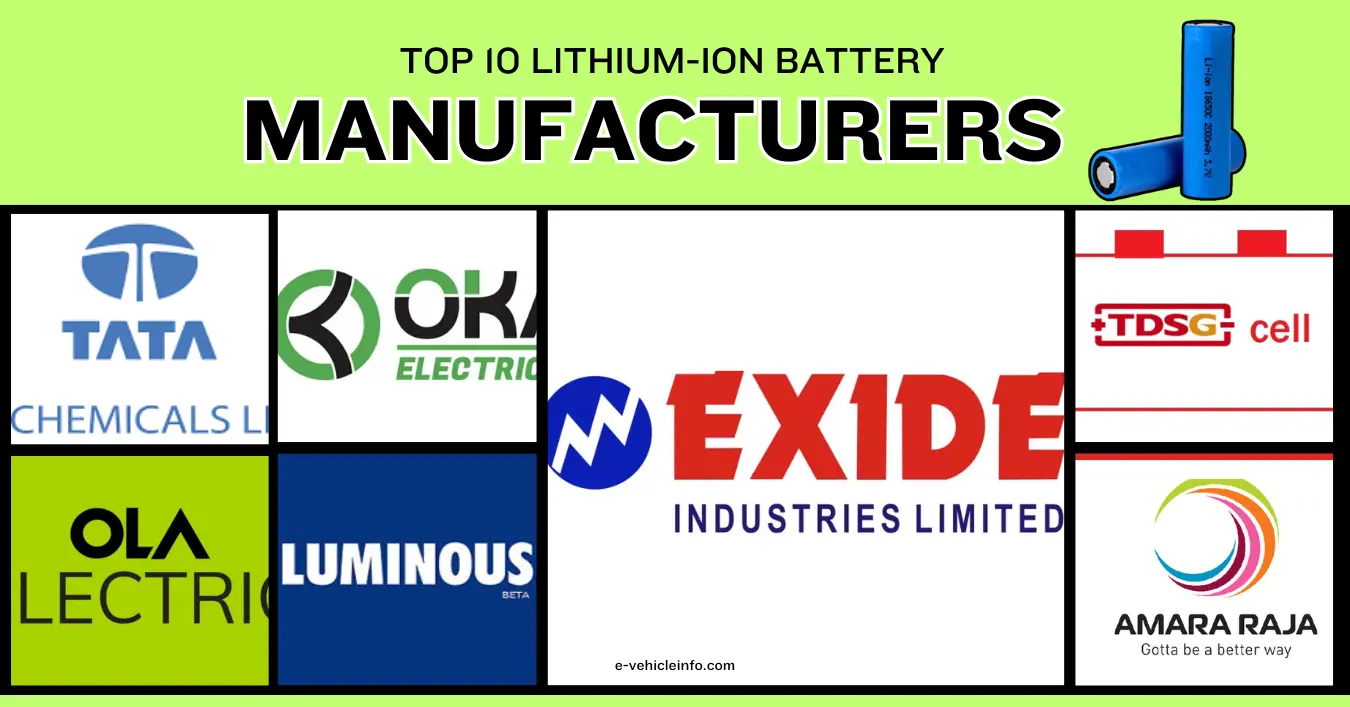
Recently, during World EV Day, multiple reports highlighted India’s impressive progress in EV sales, with electric three-wheelers leading the charge, closely followed by two-wheelers and four-wheelers.
At the core of this transformation is the lithium-ion battery, the most critical component powering electric vehicles due to its high energy efficiency and long lifespan.
The lithium battery industry encompasses a wide range of companies and has been experiencing a steady annual growth rate of 5.27%.
Globally, the top five country hubs driving this industry forward include the USA, China, India, the UK, and Australia.
These nations are at the forefront of lithium battery production, innovation, and research, contributing significantly to the expansion of the electric vehicle and renewable energy sectors.
India boasts several major players in the lithium-ion battery manufacturing sector, each contributing significantly to the nation’s EV ecosystem by producing large quantities of batteries.
Some of the leading companies driving this growth are Amara Raja Batteries, Exide Industries, TDSG (Toshiba-Denso-Suzuki Gigafactory), and Tata Chemicals, among others.
In this article, we will explore the top 10 lithium-ion battery manufacturers in India and examine their contributions to the expanding lithium-ion battery market in the country.
| Sr. No | Company | Headquarters |
| 1 | Amara Raja Batteries Ltd | Tirupati |
| 2 | Exide Industries | Kolkata |
| 3 | TDSG | Gujarat |
| 4 | Tata Chemicals | Mumbai |
| 5 | Luminous Power Technologies | Haryana |
| 6 | Okaya Power Group | New Delhi |
| 7 | HBL Power Systems Ltd | Hyderabad |
| 8 | Panasonic India | Haryana |
| 9 | Ola Electric | Bangalore |
| 10 | Log9 | Bengaluru |
Headquarters: Tirupati, Andhra Pradesh
The Amara Raja Group has over 18,532 employees and group revenue of over $2 billion for the 2024 fiscal year.
ARBL has prestigious original equipment manufacturers like Maruti Suzuki India Limited, Hyundai Motors India Limited, Ford India Limited, Tata Motors Limited, Mahindra and Mahindra Limited, and Honda Cars India Limited.
ARBL Industrial and Automotive batteries are exported to 50 countries across the globe.
The battery plants are located at Karakambadi (which has three plants) and Amara Raja Growth Corridor (ARGC has four manufacturing plants) in Chittoor District, Andhra Pradesh, India.
ARBL till now mainly involved in manufacturing lead-acid batteries but due to the increasing demand for Li-ion batteries in EVs, it has planned to set Gigafactory and is setting up a Rs 9,500-crore Gigafactory for lithium-ion cells and battery packs in Telangana.
Recent News about the Company
Headquarter: Kolkata
It has nine manufacturing plants located in Haryana, West Bengal, Uttarakhand, Maharashtra, and Tamil Nadu.
Together, these manufacturing plants produce an annual output of 8 Million Units of Automobile batteries (including batteries for motorcycle applications), and over 600 million Ampere-Hours of Industrial Power.
Exide has its business in more than 50 countries including the UK, USA, and Japan.
Exide Industries Limited’s net turnover for the financial year 2023 was 146 billion Indian rupees. This was a significant increase from the previous year. Till now Exide was involved in Lead-acid batteries manufacturing but now the company is switching to manufacturing Li-ion batteries.
In 2018, Exide entered a partnership with Leclanche S.A based in Switzerland for Li-ion battery production and renamed its Gujarat plant Exide Energy Private Limited which has a brand named Nexcharge that offers customized Li-ion batteries and energy solutions for transport and Industrial applications.
The plant has a state-of-the-art 1.5 GWh manufacturing facility based on NMC, LTO, and LFP battery chemistry for the cylindrical, pouch, and prismatic battery pack. Nexcharge has its R&D center in Bengaluru.
To fulfill its mission, Nexcharge has built India’s largest factory equipped with fully automated assembly lines of li-ion battery packs, modules (Pouch/ Prismatic/ Cylindrical), and cell testing labs at Prantij, Sabarkantha, Gujarat.
Recent News about the Company
Headquarter: Ahmedabad
This plant will manufacture and supply LTO based-Li-ion batteries for Maruti Suzuki and Suzuki Gujarat. A total of $180 million is to be invested in this plant.
The company claims its battery for rapid charging, long life, and safe operation ability. All these three companies have been working in Japan.
Recent News about the Company
The expansion of Tata Motors’ Sanand plant in Gujarat, marks a key milestone in this effort.
The new lithium-ion battery production facility, expected to be operational by 2025, is part of Tata’s broader vision to accelerate the transition to electric vehicles (EVs).
This investment will not only support the growth of the EV market but also help reduce the overall cost of electric vehicles in India.
The expansion of the Sanand plant, supported by an investment of Rs 30 billion, is set to create 10,000 new jobs.
Tata Motors aims to have 25% of its vehicle sales come from electric vehicles by 2026, with the new lithium-ion battery production playing a crucial role in this target.
Additionally, Tata Chemicals has signed an MoU with the Gujarat government to establish a 20-gigawatt manufacturing unit for lithium-ion cells, further emphasizing the Tata Group’s commitment to India’s EV transformation.
The company is also working on building its own EV charging infrastructure, positioning itself as a major player in the future of sustainable mobility.
The year 2024 has been remarkable for the Indian E4W segment. With several launches planned for this year, beginning next…
In a business setting where trust and ethics are crucial, a startling revelation from the founder of Raft Motors Pvt.…
We have compiled a list of upcoming electric vehicle events and EV expos across India through in-depth research. This article…
Batteries have become an integral part of our daily lives, powering everything from our smartphones to electric vehicles. Lithium-ion batteries…
India is at the forefront of this EV transformation as the world shifts towards sustainable transportation. The Indian Automobile Industry…
Electric vehicle sales will double this year, market penetration will reach 4% in 2025, know what are the possible reasons…
This website uses cookies.